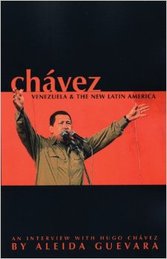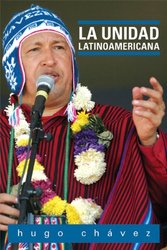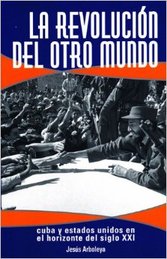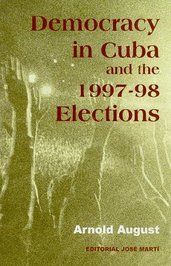Following Marx, we can understand ideology as the distortion of reality in defense of the particular interests of the wealthy and the powerful (Lorrain 1983:25-30, 1979:46-52; Althusser 1976:55-56, 154-56; Schaff 1976:137-38). Ideology is integral to world-systems. Inasmuch as they are formed through conquest and are sustained through the forced appropriation of goods produced by the conquered peoples, world-systems must generate ideologies that justify conquest and the unequal distribution of goods and that legitimate structures of domination.
In 2004, Wallerstein gave a series of three lectures at St. John’s College of the University of British Columbia on the theme of “European universalism.” His words to begin the lectures succinctly express the role of conquest in the the establishment of the modern world-system, the necessity of ideology to legitimate it, and the formulation of an ideology that pretends to represent universal human values.
In 2004, Wallerstein gave a series of three lectures at St. John’s College of the University of British Columbia on the theme of “European universalism.” His words to begin the lectures succinctly express the role of conquest in the the establishment of the modern world-system, the necessity of ideology to legitimate it, and the formulation of an ideology that pretends to represent universal human values.
"The history of the modern world-system has been in large part a history of the expansion of European states and peoples into the rest of the world. This has been an essential part of the construction of a capitalist world-economy. The expansion has involved, in most regions of the world, military conquest, economic exploitation, and massive injustices. Those who have led and profited most from this expansion have presented it to themselves and the world as justified on the grounds of the greater good that such expansion has had for the world’s population. The usual argument is that the expansion has spread something variously called civilization, economic growth and development, and /or progress. All of these words have been interpreted as expressions of universal values, encrusted in what is often called natural law. Therefore, it has been asserted that this expansion was not merely beneficial to humankind but also historically inevitable” (2006:1).
The Spanish conquest of the indigenous peoples of America during the sixteenth century was justified on the grounds that the indigenous peoples were “barbaric” and uneducated, and that the Spanish conquest and the Christianization of the indigenous peoples were bringing to an end their barbaric practices. During the nineteenth century, the process of secularization established the separation of religious claims from politics and public discourse. This made necessary different language, and thus European colonial domination of Africa and Asia was justified on the grounds that the European powers were undertaking a civilizing mission (Wallerstein 2006:2-11).
During the period 1945-70, anti-colonial movements attained the political independence of the European colonies in Africa, Asia, and the Caribbean, thus establishing as a principle the right of sovereignty of all nations, including the newly independent nations formed from the colonies by the colonized. But just as the world embraced this principle, there emerged a new emphasis on human rights in world politics, in which accusations of human rights violations in particular nations came to be used as justifications for interventions in these nations, interventions that functioned to sustain the neocolonial world-system (Wallerstein 2006:16-25).
Thus the right, and indeed the duty, of European nations to conquer and dominate other lands and peoples were central to the ideology of the world-system during the colonial area. It was presumed that Europeans were superior, because they were Christians or more civilized. When anti-colonial movements formed by the colonized made necessary a transition to neocolonialism, adjustments were made in the political and cultural components of the world-system. On the ideological plane, it was now presumed that Europeans were superior because they were more democratic. It was believed, and is believed, that Europeans have led the world in the establishment of democratic institutions, and their more advanced understanding and practices endows them with the authority to make judgments concerning the political institutions of the formerly colonized and/or peripheralized peoples.
Wallerstein maintains that in the history of the modern world-system, it has been assumed that the values that justified conquest and intervention were universal ones. But in actuality these supposedly universal values have been “the social creation of the dominant strata in a particular world-system;” they form “a set of doctrines and ethical views that derive from a European context,” even though they “aspire to be, or are presented as, global universal values” (2006:27).
The partial and ethnocentric nature of the supposedly universal values proclaimed by world-system ideology is illustrated with respect to human rights. Questions of human rights are evaluated on a standard of representative democracy developed in Western Europe and the United States, ignoring alternative forms of democracy that necessarily emerge in the context of the colonial situation, in which neocolonized nations are seeking autonomous development and are striving to establish the protection of the social and economic rights of the people in response to the legacy of underdevelopment, and they are required to move forward in a context shaped by various forms of intervention by neocolonial powers. In the colonial situation, the unity and the political education of the people, along with protective measures against the interventionist maneuvers of the neocolonial powers, are necessary. Thus there tend to emerge single political parties led by vanguards and charismatic leaders, popular councils, popular election of delegates, and political control of the mass media. These alternative structures of popular democracy that emerge in an alternative social, economic, and political context are assumed to be violations of human rights, simply by virtue of their difference from the structures of representative democracy developed in Europe and the European settler societies. Such cultural myopia is understandable, inasmuch as the purpose is not to stimulate global reflection on the meaning of democracy, but to legitimate interventions in countries that seek true independence, with the intention of maintaining neocolonial control of the nations of the world. In short, what occurs is a manipulation of the issue of human rights in order to justify intervention. It no doubt is more sophisticated than the simplistic claim that the colonized are uncivilized, but it has the same ideological agenda, and it is rooted in the same assumption of European superiority.
For Wallerstein, the supposedly universal values that have justified interventions in the various stages in the development of the world-system are a “partial and distorted universalism” that is a “universalism of the powerful.” Wallerstein calls it “‘European universalism’ because it has been put forward by pan-European leaders and intellectuals in their quest to pursue the interests of the dominant strata of the modern world-system” (2006:xii).
Wallerstein seeks a “genuine universalism” or a “universal universalism,” which we will discuss in subsequent posts.
References
Althusser, Louis. 1976. Essays in Self-Criticism. London: New Left Books.
Lorrain, Jorge. 1979. The Concept of Ideology. Athens: University of Georgia Press.
__________. 1983. Marxism and Ideology. Atlantic Highlands, NJ: Humanities Press.
Schaff, Adam. 1976. History and Truth. New York: Pergamon Press.
Wallerstein, Immanuel. 2006. European Universalism: The Rhetoric of Power. New York: The New Press.
Key words: Third World, revolution, colonialism, neocolonialism, imperialism, democracy, national liberation, sovereignty, self-determination, socialism, Marxism, Leninism, Cuba, Latin America, world-system, world-economy, development, underdevelopment, colonial, neocolonial, blog Third World perspective, Wallerstein, universalism, ethnocentrism, ideology, domination
During the period 1945-70, anti-colonial movements attained the political independence of the European colonies in Africa, Asia, and the Caribbean, thus establishing as a principle the right of sovereignty of all nations, including the newly independent nations formed from the colonies by the colonized. But just as the world embraced this principle, there emerged a new emphasis on human rights in world politics, in which accusations of human rights violations in particular nations came to be used as justifications for interventions in these nations, interventions that functioned to sustain the neocolonial world-system (Wallerstein 2006:16-25).
Thus the right, and indeed the duty, of European nations to conquer and dominate other lands and peoples were central to the ideology of the world-system during the colonial area. It was presumed that Europeans were superior, because they were Christians or more civilized. When anti-colonial movements formed by the colonized made necessary a transition to neocolonialism, adjustments were made in the political and cultural components of the world-system. On the ideological plane, it was now presumed that Europeans were superior because they were more democratic. It was believed, and is believed, that Europeans have led the world in the establishment of democratic institutions, and their more advanced understanding and practices endows them with the authority to make judgments concerning the political institutions of the formerly colonized and/or peripheralized peoples.
Wallerstein maintains that in the history of the modern world-system, it has been assumed that the values that justified conquest and intervention were universal ones. But in actuality these supposedly universal values have been “the social creation of the dominant strata in a particular world-system;” they form “a set of doctrines and ethical views that derive from a European context,” even though they “aspire to be, or are presented as, global universal values” (2006:27).
The partial and ethnocentric nature of the supposedly universal values proclaimed by world-system ideology is illustrated with respect to human rights. Questions of human rights are evaluated on a standard of representative democracy developed in Western Europe and the United States, ignoring alternative forms of democracy that necessarily emerge in the context of the colonial situation, in which neocolonized nations are seeking autonomous development and are striving to establish the protection of the social and economic rights of the people in response to the legacy of underdevelopment, and they are required to move forward in a context shaped by various forms of intervention by neocolonial powers. In the colonial situation, the unity and the political education of the people, along with protective measures against the interventionist maneuvers of the neocolonial powers, are necessary. Thus there tend to emerge single political parties led by vanguards and charismatic leaders, popular councils, popular election of delegates, and political control of the mass media. These alternative structures of popular democracy that emerge in an alternative social, economic, and political context are assumed to be violations of human rights, simply by virtue of their difference from the structures of representative democracy developed in Europe and the European settler societies. Such cultural myopia is understandable, inasmuch as the purpose is not to stimulate global reflection on the meaning of democracy, but to legitimate interventions in countries that seek true independence, with the intention of maintaining neocolonial control of the nations of the world. In short, what occurs is a manipulation of the issue of human rights in order to justify intervention. It no doubt is more sophisticated than the simplistic claim that the colonized are uncivilized, but it has the same ideological agenda, and it is rooted in the same assumption of European superiority.
For Wallerstein, the supposedly universal values that have justified interventions in the various stages in the development of the world-system are a “partial and distorted universalism” that is a “universalism of the powerful.” Wallerstein calls it “‘European universalism’ because it has been put forward by pan-European leaders and intellectuals in their quest to pursue the interests of the dominant strata of the modern world-system” (2006:xii).
Wallerstein seeks a “genuine universalism” or a “universal universalism,” which we will discuss in subsequent posts.
References
Althusser, Louis. 1976. Essays in Self-Criticism. London: New Left Books.
Lorrain, Jorge. 1979. The Concept of Ideology. Athens: University of Georgia Press.
__________. 1983. Marxism and Ideology. Atlantic Highlands, NJ: Humanities Press.
Schaff, Adam. 1976. History and Truth. New York: Pergamon Press.
Wallerstein, Immanuel. 2006. European Universalism: The Rhetoric of Power. New York: The New Press.
Key words: Third World, revolution, colonialism, neocolonialism, imperialism, democracy, national liberation, sovereignty, self-determination, socialism, Marxism, Leninism, Cuba, Latin America, world-system, world-economy, development, underdevelopment, colonial, neocolonial, blog Third World perspective, Wallerstein, universalism, ethnocentrism, ideology, domination








 RSS Feed
RSS Feed











